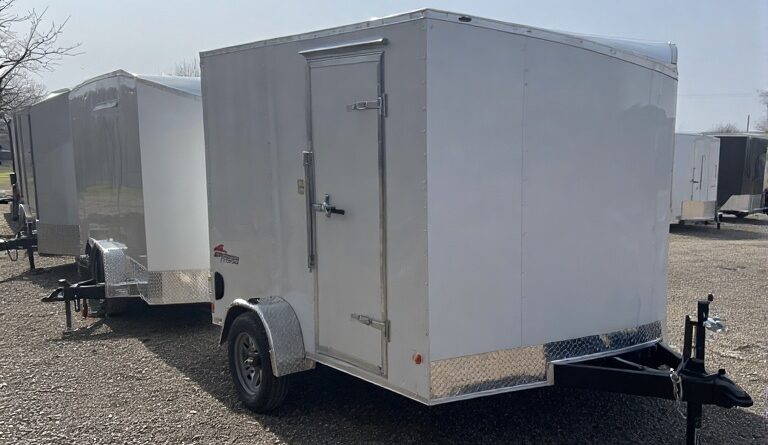Exploring the Different Types of Enclosed Trailers and Their Construction Materials
Enclosed trailers have become an essential part of logistics, construction, motorsports, and even small business operations. Designed to keep cargo protected from weather, dust, and theft, these trailers are built for durability, security, and versatility. Understanding the various types of enclosed trailers can help you choose the right one for your specific needs, whether you’re hauling tools, vehicles, or equipment.
In this article, we’ll explore the major categories of enclosed trailers and highlight how modern materials like the GRP plywood panel and recyclable PET foam are revolutionizing trailer construction.
What Are Enclosed Trailers?
Enclosed trailers are non-motorized, towable units that feature solid walls and a roof, enclosing the cargo area completely. Unlike open trailers, they provide superior protection from external elements and allow for the secure transport of valuable or sensitive items.
These trailers are used in a wide array of industries, from landscaping and construction to food vending and motorsports. The choice of trailer depends on the cargo type, intended usage, and customization preferences.
Common Types of Enclosed Trailers
1. Cargo Trailers
Cargo trailers are perhaps the most commonly used type of enclosed trailer. They come in a wide range of sizes and configurations and are ideal for transporting goods, tools, and equipment. Many small businesses rely on cargo trailers for deliveries and mobile operations.
2. Car Hauler Trailers
These trailers are built specifically to transport cars. They often include tie-down points, heavy-duty axles, and ramps. Car haulers are a favorite among auto dealers, race teams, and car enthusiasts.
3. Motorcycle and ATV Trailers
These are smaller enclosed trailers designed to secure motorcycles, dirt bikes, or ATVs. They often include interior racks, chocks, and customized tie-downs to prevent shifting during transport.
4. Concession Trailers
Concession or vending trailers are designed for mobile food businesses. They feature serving windows, kitchen equipment space, and sometimes plumbing and electrical systems. These trailers are perfect for festivals, fairs, and urban street food operations.
5. Tool and Utility Trailers
Used mainly by contractors and tradespeople, these trailers serve as mobile workshops. They are often outfitted with shelving units, tool racks, and storage compartments for efficient on-the-go work.
Advanced Materials in Enclosed Trailer Construction
The performance and lifespan of an enclosed trailer greatly depend on the materials used in its construction. Two of the most impactful materials being integrated into modern trailers are the GRP plywood panel and recyclable PET foam.
GRP Plywood Panel
The GRP plywood panel (Glass Reinforced Plastic) combines the strength of plywood with the durability of fiberglass. This makes the trailer’s walls more resistant to weather damage, impact, and corrosion. GRP-coated panels are lightweight yet incredibly strong, offering the ideal balance for trailer walls and floors. They also require less maintenance and have a longer service life than traditional wooden panels.
Recyclable PET Foam
Another revolutionary material in trailer manufacturing is recyclable PET foam. Used primarily as core material in composite panels, PET foam is lightweight, eco-friendly, and extremely durable. It provides excellent thermal insulation, making it especially valuable in temperature-sensitive cargo trailers such as refrigerated or food service units.
Unlike traditional foam cores, recyclable PET foam can be reused, contributing to a more sustainable supply chain without compromising performance or safety. This makes it an ideal option for manufacturers looking to reduce their carbon footprint.
Choosing the Right Enclosed Trailer
When selecting from the various types of enclosed trailers, you should consider:
- Cargo type: What are you hauling? Vehicles, tools, food, or equipment?
- Frequency of use: Daily commercial use demands heavy-duty construction.
- Customization needs: Do you require shelves, ramps, ventilation, or electrical wiring?
- Material durability: Opt for innovative materials like GRP panels and PET foam for better longevity and environmental benefits.
Final Thoughts
The market offers a diverse range of types of enclosed trailers, each tailored to specific industries and applications. Beyond just design and function, choosing a trailer made with high-performance materials like GRP plywood panels and recyclable PET foam ensures durability, reduced maintenance, and environmental responsibility.
If you’re in the market for an enclosed trailer, consider not just what it can carry—but what it’s made of. The right combination of design and materials will give you a product that lasts longer and performs better in any condition.



